Top 250 Movies Like La Notte Della Repubblica
A list of the best movies similar to La notte della Repubblica. If you liked La notte della Repubblica then you may also like: The Yes Man, Videocracy, Cellini: A Violent Life, We Believed, We Want the Colonels and many more great movies featured on this list.
A TV programme presented by Sergio Zavoli, broadcast by the Italian public TV channel Rai 2, about Italy during the Years of Lead, with movies, interviews with some protagonists of the period and final discussion.
Videocracy
In a country where bella figura is a national pastime, Prime Minister Silvio Berlusconi is the maestro of media manipulation. Having risen to political primacy with the aid of his Mediaset empire, he now controls 90% of the bel paese’s television channels including the state-run RAI network. Quantity, it seems, does not equal quality. Fed on a diet of semi-naked dancing girls, inane competitions and rickety reality shows built around the most ridiculous of premises, is it any wonder that Italians are becoming a nation of fame-hungry wannabes?
Cellini: A Violent Life
The story of Benvenuto Cellinin (1500-1571), a soldier and one of the most important craftsmen and artists of Renaissance Italy whose life was marked by many achievements and adventures, but also crimes. There is also the mini-series version consisted of three 90 minutes episodes, broadcasted by RaiDue.
We Believed
1828. In the wake of the repression of revolutionary movements in Southern Italy, three young friends join Giuseppe Mazzini's republican and unificationist cause. Their idealism will clash with the inevitable disillusionment as they grow apart over the decades.
We Want the Colonels
Italy 1973. Giuseppe Tritoni (Ugo Tognazzi) is an ultra-right-wing congressman that doesn't agree anymore with his fascist party policy. He contacts many Italian Army officers and built a net of relationship in order to organize a Coup d'Etat (Golpe). Something goes wrong and the Interior Minister (Home Secretary) Mr. Li Masi (Lino Pugliesi) got the all information about the attempted Golpe. So the Minister organizes a counter-Golpe. Tritoni desperately, to save his project, kidnaps the Italian Republic President (Claude Dauphin) that immediately dies for heartache. Now Minister Mr. Li Masi is free to lay down the law to the rest of the country, realizing basically the actual Golpe! Tritoni surrenders and will spend rest of his time trying to sell his ideas about managing Golpe in Africa!
The Working Class Goes to Heaven
After losing a finger in a work accident, an Italian worker becomes increasingly involved in political and revolutionary groups.
Romanzo Criminale
After serving prison time for a juvenile offense, Freddo gathers his old buddies Libano and Dandi and embarks on a crime spree that makes the trio the most powerful gangsters in Rome. Libano loves their new status, and seeks to spread their influence throughout the underworld, while the other two pursue more fleshly desires. For decades, their gang perpetrates extravagant crimes, until paranoia threatens to split the friends apart.
The Best of Youth
Spanning nearly four decades, this generational epic follows two Italian brothers from a middle-class family through some of the most significant events of postwar Italian history after their life paths diverge thanks to one fateful encounter during the summer of 1966.
Confessions of a Police Captain
A police captain arranges the release of a criminally insane prisoner, who soon winds up dead. When the District Attorney takes on the case, he uncovers corruption in the department and vows to take down the man who's responsible.
Il Divo
Italy, early '90s. Calm, clever and inscrutable, politician Giulio Andreotti has been synonymous with power for decades. He has survived everything: electoral battles, terrorist massacres, loss of friends, slanderous accusations; but now certain repentant mobsters implicate him in the crimes of Cosa Nostra.
Execution Squad
Bertone is a moderately honest homicide cop. Unfortunately, the court system is so inept and corrupt that many more-or-less honest policemen have begun taking the law into their own hands. Between his efforts to thwart the growth of crime and to control his vengeful co-workers, homicide-chief Bertone has his hands full
Good Night, and Good Luck.
The story of journalist Edward R. Murrow's stand against Senator Joseph McCarthy's anti-communist witch-hunts in the early 1950s.
The Caiman
Bruno Bonomo was a famous producer of B-movies in the ‘70s. After a long hiatus, Bonomo offers a screenplay to RAI centered on the figure of Italy’s prime minister and media tycoon Silvio Berlusconi, a subject so controversial that even the public television broadcaster refuses to produce it
Goodnight, Ladies and Gentlemen
An episodic satire of the political and social status of Italy in the seventies, through the shows of one day of a television channel. An English language lesson turns into a killing of a black dignitary of an embassy by a CIA agent and then into his own killing by another colleague. In a television film, the police are befooled by a fake bomb and put a real one in order not to be derided by the public. In a film inquisition show, the bishop of Naples speaks highly of the importance of the family, but a child who lives a miserable family life kills himself. In the debate that follows it is proposed that they should eat the children, as Swift had said. In the next episode, a general who is in the toilet is called for the NATO parade, but the flasher breaks and in his effort to fix it, he dirts allover and kills himself. In a children's show an inspector finds excuses and delays the arrest of a powerful man...
Anna
A documentary ostensibly about Anna, a young drug addict taken off the streets by one of the filmmakers. Through her they attempt to explore the social issues from their hippie perspective, instead they create a revealing, uncomfortable self-portrait and inadvertently raise questions about documentary film-making.
Illustrious Corpses
A detective is assigned to investigate the mysterious murders of some Supreme Court judges.
Silent Action
A number of unexplained military deaths hit Italy and are ruled to be accidental or suicides, but police inspector Giorgio Solmi suspects otherwise. When a mysterious wealthy electrician is seemingly murdered by a female escort, a sinister plot slowly begins to unravel.
The Bankers of God: The Calvi Affair
A reconstruction of the bankruptcy of the Banco Ambrosiano bank and its liaisons with the Vatican and the Masonry through its president Roberto Calvi, notoriously found dead under the Blackfriars Bridge in London in June 1982.
December 12th
On December 12th, 1969 a bomb went off at the Piazza Fontana in Milan that killed 16 people and injured 84. Railway worker and anarchist activist Giuseppe Pinelli was picked up, along with other anarchists, for questioning regarding the attack. He was held and interrogated for three days, longer than Italian law specified that people could be held without seeing a judge. Just before midnight on December 15, 1969 Pinelli was seen to fall to his death from a fourth floor window of the Milan police station. Although officially deemed a suicide, the reporter who watched the fall from the street maintained that he was pushed. Three police officers interrogating Pinelli were put under investigation in 1971 for murder but charges were dropped because of lack of evidence.
The Great Kidnapping
In early seventies Italy, plagued by criminality and political terrorism, a fearless police commissioner is sent to restore law and order in a northern industrial town devastated by a recent wave of violence and kidnappings..
Investigation of a Citizen Above Suspicion
Rome, Italy. After committing a heinous crime, a senior police officer exposes evidence incriminating him because his moral commitment prevents him from circumventing the law and the social order it protects.
Loro 1
"Loro", in two parts, is a period movie that chronicles, as a fiction story, events likely happened in Italy (or even made up) between 2006 and 2010. "Loro" wants to suggest in portraits and glimps, through a composite constellation of characters, a moment in history, now definitively ended, which can be described in a very summary picture of the events as amoral, decadent but extraordinarily alive. Additionally, "Loro" wishes to tell the story of some Italians, fresh and ancient people at the same time: souls from a modern imaginary Purgatory who, moved by heterogeneous intents like ambition, admiration, affection, curiosity, personal interests, establish to try and orbit around the walking Paradise that is the man named Silvio Berlusconi.
Hands over the City
Prior to a city council election, the collapse of a building leaves a land developer and his political backers defending themselves against a scandal.
Love Meetings
Microphone in hand, Pier Paolo Pasolini asks Italians to talk about sex, apparently their least favorite subject: he asks children if they know where do babies come from, asks old and young women about gender equality, and asks both genders if a woman's virginity still matters, how do they view homosexuals, if sex and honor are related, if divorce should be legal, if they support the recent abolition of brothels, etc. He interviews workers, intellectuals, students, rural farmers, the bourgeoisie, and other different people, painting a vivid portrait of Italy in the years of the Economic Boom, suspended between modernity and tradition.
Piazza Fontana: The Italian Conspiracy
On December 12, 1969, a bomb kills 17 people at the Piazza Fontana national bank in Milan, Italy, marking the beginning of the Years of Lead. Local anarchists are scapegoated for the massacre by police and the media, but a lone prosecutor uncovers a conspiracy of far-right groups, corrupt secret services, and other interests that seek to undermine democracy.
The Postman
Simple Italian postman learns to love poetry while delivering mail to a famous poet; he uses this to woo local beauty Beatrice.
Fellini: I'm a Born Liar
A look at Fellini's creative process. In extensive interviews, Fellini talks a bit about his background and then discusses how he works and how he creates. Several actors, a producer, a writer, and a production manager talk about working with Fellini. Archive footage of Fellini and others on the set plus clips from his films provide commentary and illustration for the points interviewees make. Fellini is fully in charge; actors call themselves puppets. He dismisses improvisation and calls for "availability." His sets and his films create images that look like reality but are not; we see the differences and the results.
The Fall of the Rebel Angels
Who is the mysterious stranger Cecilia met on the street? Why is he suspicious of everyone? She is happily married, has a lovely child and a good job: yet she decides to join him and to become his lover, sharing his destiny right up to its tragic conclusion.
The Profession of Arms
In autumn of 1526, the Emperor, Charles V, sends his German landsknechts led by Georg von Frundsberg to march towards Rome. The inferior papal armies, commanded by Giovanni de'Medici, try to chase them in the midst of a harsh winter. Nevertheless, the Imperial armies manage to cross the rivers along their march and get cannons thanks to the maneuvers of its Lords. In a skirmish, Giovanni de'Medici is wounded in the leg by a falconet shot. The attempts to cure him fail and he dies. The Imperial armies assault Rome. The film is beautifully but unassumingly set, and shows the hard conditions in which war is waged and its lack of glory. It ends straightforwardly with the declaration made after the death of Giovanni de'Medici by the commanders of the armies in Europe of not using again fire weapons because of their cruelty.
My Brother Is an Only Child
Accio and Manrico are two working-class brothers in 1960s Italy: older Manrico is handsome, charismatic, womanizing, and loved by all, while younger Accio is moody, hotheaded, and lives everything as if it was a war, much to his parents' chagrin. While the former is drawn into left-wing politics, Accio joins the fascists out of spite. His flimsy beliefs are put to test when he falls in love with Manrico's like-minded girlfriend.
One Hundred Steps
Peppino Impastato is a quick-witted lad growing up in 1970s small-town Sicily. Despite living in a family with Mafia ties, one hundred steps away from the house of local boss Tano Badalamenti, Peppino denounces the whole Mafia system by using a small local radio station to broadcast his political pronouncements in the form of ironic humour.
Tragedy of a Ridiculous Man
The son of the owner of a large Italian cheese factory is kidnapped, but as the factory is on the verge of bankruptcy the owner hatches a plan to use the ransom money as reinvestment in the factory.
Dear Father
In Caro papá, Dino Risi is telling the story of the decadent lifestyle, and dysfunctional family, of a wealthy businessman (played to perfection by Risi's favorite leading man, Vittorio Gassman). Risi paints his portrait against a backdrop of an Italy where the new permissiveness has run rampant, traditional socio-cultural values have been usurped by consumerism, and the streets have become an open battleground for politically extremist groups (the '70s were dubbed "The Years of Lead" due to the great number of terrorist acts, and politically motivated assassinations).
Ecce Bombo
Michele, Goffredo, Mirko and Vito are four friends who have participated in the battles of the student in Sixties. Now in the Seventies, the four friends don't know what to do, though young and with so many possibilities to find a job in life. Intellectuals marginalized and misunderstood, the four friends find themselves when they can in a restaurant to discuss their outlandish theories. A girl named Olga disrupts their life, but Michele is her favorite, although he does not know what to do with the girl.
Blow to the Heart
The son of a university professor discovers his father's secret life and has to decide what to do about it.
Nico, 1988
Approaching age 50, singer/songwriter Nico leads a solitary existence, far from her days as a Warhol superstar and celebrated vocalist for the Velvet Underground in the 1960s. Her life and career on the fringes, Nico's new manager convinces her to hit the road again and tour in Europe to promote her latest album. She longs to rebuild a relationship with her son, whose custody she lost long ago.
Baciami piccina
7th September 1943. The honest and reliable carabiniere Umberto is sent to escort the flamboyant con man Raoul Nuvolini from Terni to Venice. Umberto's fiancée Luisa follows him against his will.
Good Morning, Night
The 1978 kidnapping and murder of Aldo Moro, president of the most important political party in Italy at the time, Democrazia Cristiana, as seen from the perspective of one of his assailants -- a conflicted young woman in the ranks of the Red Brigade.
How to Kill a Judge
A filmmaker's popular movie about a corrupt judge who is killed by the Mafia seemingly foretells the murder of a magistrate who orders the film's seizure.
Gladio
In three programmes shown over consecutive weeks in BBC2's Timewatch strand, Allan Francovich interviewed key Gladio players such as Propaganda Due head, Licio Gelli, Italian neofascist and terrorist Vincenzo Vinciguerra, Venetian judge Felice Casson, Italian Gladio commander General Gerardo Serravale, Belgian Senator Roger Lallemand, Belgian gendarme Martial Lekue and former CIA director William Colby. Also included was "hoaxer" Oswald LeWinter.
Il caso Moro
On March 16, 1978, far-left terrorists of the Red Brigades kidnap Aldo Moro, leader of the Christian Democracy, the ruling party in Italy since the end of WWII. 55 days later, his body will be found in the trunk of a car. This is a neutral and factual account of what happened in between.
San Babila-8 P.M.
A quartet of young neo-Fascists terrorise the Milanise locals while the Police mostly look the other way.
Five Moons Plaza
Just the night before his retirement District Attorney Saracini is given a film showing the kidnapping of Aldo Moro. As the District Attorney takes on the case he along with his team finds more compelling and secretive evidences. Too many secrets are found that should stayed as secrets.
Killer Cop
The investigation of the bombing of a hotel lobby as seen through the eyes of a young detective.
I Am Afraid
During a wave of political violence in Italy, a policeman who's already survived an assassination is assigned to act as a bodyguard to a morally upright judge. He feels increasingly fearful as the links of the upper echelons of police and government to the violence become clear.
One Way or Another
Set during a retreat of Christian Democrat politicians who practice spiritual exercises together, it is an allegory of corrupted power. Disturbing, claustrophobic settings are the background to a series of mysterious crimes.
'o Re
One of the key factors in Italian unification was the overthrow in 1860 of Francesco, the King of Naples and the two Sicilies, who went into elegant but impoverished exile in Rome with his Queen, Maria Sofia. This seriocomic drama follows the deposed royals as they adapt to their new lives. The former king has recognized the political finality of his deposition, but his queen has taken to traveling in men's clothing all over Italy trying to foment an uprising to restore them to the throne. She is also frantic to have a baby, an heir, but the king has become celibate as a kind of homage to his beloved mother; he spends all his time lobbying the Vatican to get her declared a saint.
Carlo Giuliani, a Boy
The film recounts Carlo Giuliani’s day of July 20 and, parallel to it, the July 20 of the march of the ‘disobedients’, or the ‘white overalls’, among whose ranks Carlo died. An individual’s story is told in all its absolute concreteness, the friends he meets, the snack bar he goes to for a bite, the roll of scotch tape he picks up on the street; whereas a multitude’s story is told in all its epic tragedy, the night under the rain, the colossal preparation against the march, the advance behind shields, the attack of which the multitude was victim, the defense that gets organized.
Let's Have a Riot
Episodes centering on different aspects of early-1970s Italian life, set in a television studio, a factory, a university, and a Catholic parish.
Viva Zapatero!
Viva Zapatero! is a 2005 documentary by Sabina Guzzanti telling her side of the story regarding the conflict with Silvio Berlusconi over a late-night TV political satire show broadcast on RAI-3. The show, RAIot (a play on the name of the Italian state public TV: RAI, and the English word riot), lampooned prime minister Berlusconi. Since it wasn't considered a satirical show, but a political one, it was cancelled after the first episode.
Django & Django: Sergio Corbucci Unchained
An homage to Italian director Sergio Corbucci of the 1960s and contemporary director Quentin Tarantino, recounting a memorable period in Italian cinema with the sensibility of today.
The Bandit of Tacca del Lupo
In 19th century southern Italy (near Melfi, Basilicata), a small force of soldiers fight in the hills against the bandits who are holding their country to ransom.
The Last Four Days
In 1945, the dictator of fascist Italy and Hitler's close ally Benito Mussolini faces defeat. In a desperate attempt to avoid capture, he tries to flee the country with his lover Claretta Petacci, but Italian partisans are on their tail.
The Front Line
United by an uncompromising struggle as members of the infamous 1970s far-left terrorist group Prima Linea, fugitive couple Sergio and Susanna have become increasingly alienated from the real world. Their luck runs out when Susanna is captured and thrown in jail. Putting his life on the line, Sergio embarks on a radical plan... Loosely based on the memoir by Prima Linea's 'commander' Sergio Segio.
My Way: The Rise and Fall of Silvio Berlusconi
Former Italian prime minister Silvio Berlusconi opens up about his life, including his sex scandals, corruption trials, and friendship with Putin.
Romanzo radicale
Romanzo Radicale is political and human adventure of Marco Pannella, portraying the most intimate moments, the political fights, his unique gestures that have made an era.
Il falso bugiardo
Based upon Vincenzoni's biography, "Pane e cinema", the documentary traces the story of the screen play writer who invented many stories that became blockbusters throughout the world.
The Con Artists
Belle Duke, in order to get revenge on her former lover Philip Bang, organize his jail break. But instead of Philip is the Italian Felice Brianza, AKAS Felix, to escape. Now Felix is obliged to help Philip to escape. He will succeeded and from that moment on the two will join to defraud Belle. The swindle plot become more complicate when Felix falls in love for Philip's daughter.
Viva l'Italia
The story of a leading political man, suddenly telling “all the truth” after a serious illness and therefore overwhelming lifes of anyone surrounding him…
The Boom
Sweet-sour comedy on Italy's 1950s rage to get rich as fast as possible! The businessman wants to satisfy his wife's craving for luxury and a "respectable life" so he becomes heavily indebted. In desperation he agrees to sell a precious part of his body for a large sum of money. But just before the crucial operation he panics...
Desirable Teacher 2
Pierino has again flunked the exams. Therefore, his desperate parents send him to boarding school.
Don Camillo in Moscow
Priest Don Camillo blackmails his friendly rival Peppone into letting him join a Communist delegation visiting the Soviet Union.
Ferdinando and Carolina
On his death bed in the 1820s, King Ferdinando I of Naples tries to escape the ghosts of his bloody kingship by remembering his younger days, when he was allowed to go hunting and have fun, and inventing love games. Then he was obliged to marry Mary Caroline of Austria, daughter of Empress Mary Theresa, in a political marriage: unexpectedly, they became happy lovers, until court power games divided them, and a different historical season arrived.
I Am Self-Sufficient
Michele Apicella lives in Rome, in an apartment paid for by his father. Abandoned by his wife and his son Andrea, he occupies his time acting in an experimental theater company under the artistic direction of his friend Fabio.
Anglian Lives: Alan Partridge
A documentary on the life and career of Norwich's finest broadcaster, Alan Gordon Partridge. In the programme Alan is asked tough questions about his divorce, Toblerone addiction and his autobiography 'Bouncing Back' by formidable interviewer Ray Woollard. The documentary will show rare and previously unseen footage of Alan broadcasting on Radio Norwich, commentating on sport and reading extracts from his book. He also talks candidly about the state of television today, his hatred of London and his three rules for life.
Io tigro, tu tigri, egli tigra
Three short stories full of absurd Italian humor. Episode 1: Oddjobs man Elia is hired to be a waiter and soon finds himself caught up in a plot to knock off his mistress (in more ways than one). Episode 2: Della is convinced that aliens are on their way to consume the world and before long ends up a guinea pig on a spaceship from the planet Phobos. Episode 3: Roberto becomes a Bersaglieri in the Italian army and nearly causes a war between Italy and Switzerland over a packet of cigarettes.
1983: The Brink of Apocalypse
This programme recalls the events that led up to one of the most dangerous moments in the entire history of the Cold War: a NATO command post exercise, code named Able Archer 83, which caused the USSR to believe that NATO was planning a genuine nuclear attack.
Women of the Resistance
Documentary composed of interviews with female partisans who survived the German invasion of Italy in World War II.
Ennio Morricone
From his quirky compositions for the spaghetti Westerns of Sergio Leone to his sublime musical contributions to director Roland Joffé's acclaimed 1986 drama The Mission, film composer Ennio Morricone has crafted more than 500 scores over the course of his enduring career in film. Now fans can take a look back at the life and career of one of cinema's most prolific composers through interviews with both the composer himself and many of his longtime collaborators. From his Italian efforts to his work in America, this documentary covers every aspect of Morricone's career as few have, offering insight into his childhood, his longtime association with Leone, and his ultimate disenchantment with the American studio system.
Citizen Berlusconi
All the games and behind-the-scenes of Silvio Berlusconi's power, including politics, media and soccer. Citizen Berlusconi is the original version of the documentary written by Andrea Cairola and Susan Gray broadcast on August 21, 2003, during the Wide Angle program of Thirteen/Wnet New York, the major U.S. public TV station Pbs.
Ilaria Alpi: L'ultimo viaggio
Twenty years have passed since the death of Ilaria Alpi, RAI journalist and his cameraman Miran Hrovatin, killed in an ambush in Mogadishu on March 20, 1994. Since then, many mysteries, many false leads, have concealed the truth on the murder, on perpetrators, the motive of the blood. "Ilaria Alpi: L'ultimo viaggio" try turning some new light on the investigation that Ilaria was doing in Somalia on the international arms trade, now that new documents have been de-kept secret, and acquired new evidence. What she found Ilaria Alpi during her last trip? What she was prevented from telling us with that last ambush in Mogadishu?
A Question of Leadership
Shortly after Margaret Thatcher's election as prime minister, Ken Loach returned to documentary, convinced that the long gestation of feature films made them useless as instruments of topical social comment. But his trade union documentary A Question of Leadership, intended for national ITV broadcast, was criticised by the Independent Broadcasting Authority for its explicitly anti-government stance. It was eventually screened a year later, exclusively in the Midlands (tx. 13/8/1981). Believing that the then-new Channel 4 would be more amenable to politicised documentaries, Loach proposed the four-part Questions of Leadership (1983), a wider-ranging study of the trade union movement - but on viewing the completed programmes' strong criticism of leading trade unionists, an anxious Channel 4 shortened the series to two parts and proposed screening a 'balancing' documentary by a different filmmaker, before scrapping the broadcast altogether.
Interview with Salvador Allende: Power and Reason
An interview with the president of Chile conducted by Roberto Rossellini in 1971, but broadcast only after his death.
Black Emanuelle 2
Emanuelle is now confined to a Manhattan psychiatric clinic with an acute case of extreme amnesia and depraved fantasies. Can her doctor unravel a Freudian nightmare of incestuous hungers, lesbian longings, rampant nymphomania, and inexplicable body painting to solve the shocking mystery of her bizarre sexual trauma?
The Invisible Wall
June 27, 1980, an Italian DC 9 flying from Bologna to Palermo falls in the sea close to the Ustica island. 81 people die. The official version is "structure failure" of the airplane, but a number of clues lead the journalist Rocco Ferrante toward a different truth. Thanks to his perseverance against the invisible wall erected by air force officers, politicians, judges, secret agents, we come to know that, with all probability, the DC 9 has been mistakenly shot by a missile during a sort of air fight among U.S., French and Libyan top guns.
China Is Near
A pair of working class lovers - a secretary and an accountant, scheme to marry into the rich landed gentry.
The General of the Dead Army
In the early 1960s, nearly 20 years since the Second World War ended, an Italian general, accompanied by a priest who is also an Italian army colonel, is sent to Albania to locate and collect the bones of his countrymen who had died during the war and return them for burial in Italy. As they go deeper into the Albanian countryside they find they are being followed by another general who is looking for the bodies of German soldiers killed in World War II.
Viva l'Italia!
The film shows how Italy's historic national hero Giuseppe Garibaldi (embodied by Renzo Ricci) leads a military campaign known as Expedition of the Thousand in 1860 and conquers Sicily and Naples. When the Bourbon monarchy has left Southern Italy, he supports Victor Emmanuel II of Italy who achieves a lasting unification under the aegis the House of Savoy. Roberto Rossellini has said he was prouder of this film than of any other film he ever made.
Men or Not Men
In Milan, in the winter of 1944, the ruthless Cane Nero leads the fascists against the partisans. Enne 2, one of the leading figures of the C.N.L., meets Berta, whom he loved three years ago, but Berta refuses to leave her husband for him. Enne 2 is pursued by the fascists of Cane Nero and, instead of running away to Turin, waits for Berta to rejoin him
Ten Italians for One German
A cinematographic account of the reprisal ordered by the ruthless Austrian colonel Kappler in 1944 in Rome. In Via Rasella (Rasella Street) ten Italian civilians were sentenced to death for each German soldier killed in a partisan attempt.
And the Bombs Keep Falling
France 1944. A landslide imprisons five American soldiers in a cave where, after seven days, they find a passage that leads to a cache of weapons, food and Germans.
In the Fire
A doctor from New York travels to a remote plantation in the 1890s to care for a disturbed boy who seems to have inexplicable abilities. She begins treating the child, but in doing so, ignites a war between science and religion as the local priest believes the boy is possessed by the devil and the cause of the village's woes.
Misdeal
A musician named Jacques Christens, is given a proposition by an old man. For ten million Francs he is asked to impersonate a certain Paul de Baer – a man who is supposedly exiled in the Amazone. Christens is told this scheme will save Mr. Baer from ruin. An adaptation of Boileau and Narcejac's "D'entre les Morts".
Dangerous Lies Vol. 2
Dangerous Lies Vol. 2 is a horror/thriller anthology: "Two Face", "Crime Driver" and "Viral Dejavù. All the episodes are about lies that leads to death.
The Crush
Broadcast on RAI television in 1967, this charming featurette about a teenage boy’s first crush on a girl reveals director Ermanno Olmi’s love and respect for the dilemmas of everyday people, along with an early example of the kind of stylistic and narrative experimentation seen in his later work.
Sexy Night Report n. 2
Version of "Emanuelle and the Porno Nights," from the prior year, re-cut and re-edited by D'Amato and with Ajita Wilson as the presenter.
The Diabolikal Super-Kriminal
A documentary on the controversial 1960s Italian photo novels known as Killing, aka Satanik in France and Sadistik in America. Also the basis for the Turkish cult film series shot as Kilink. Includes interviews with the original actors who were familiar faces from spaghetti westerns, splatter films and historical dramas from the 1960s and 70s.




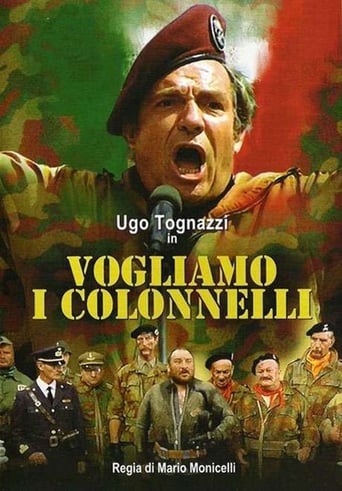







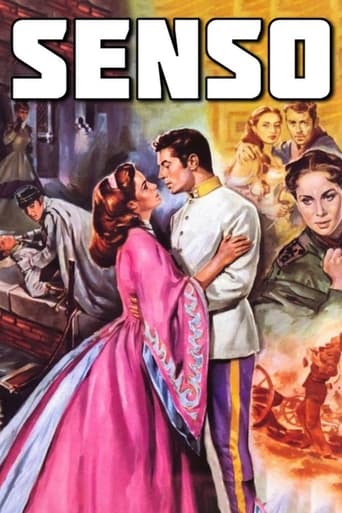


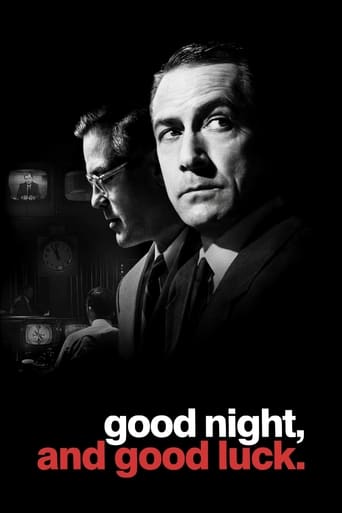









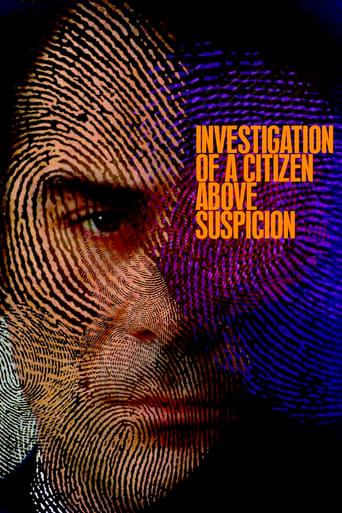

















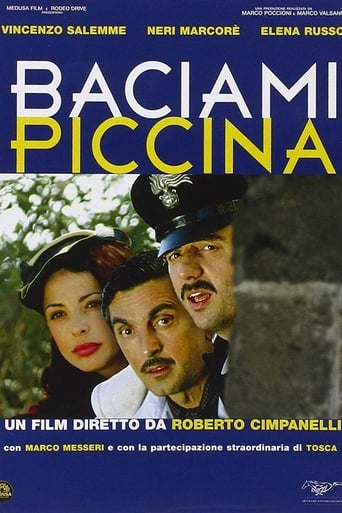



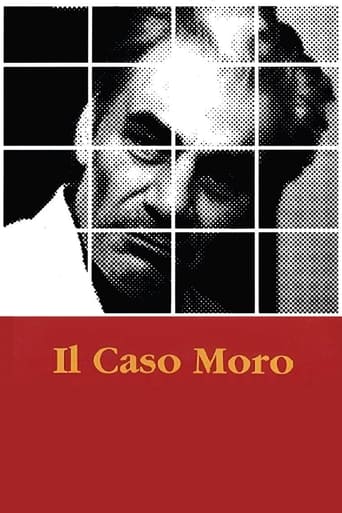

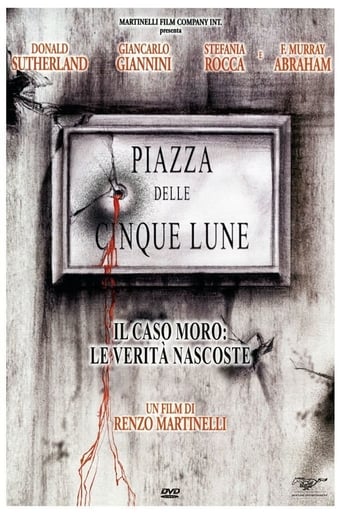
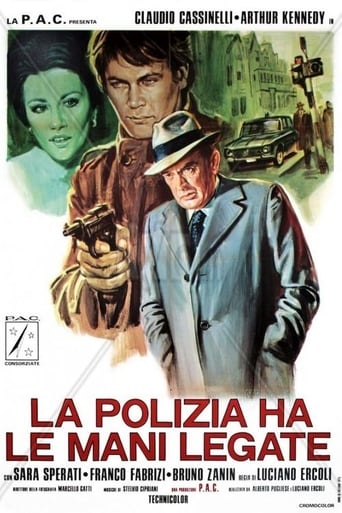






















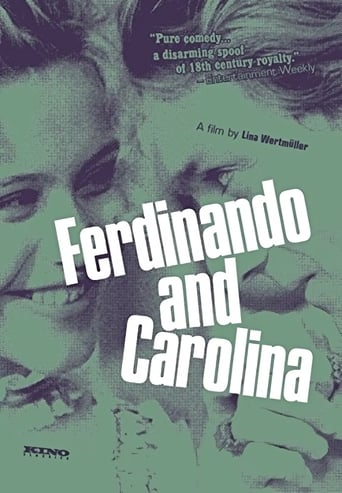
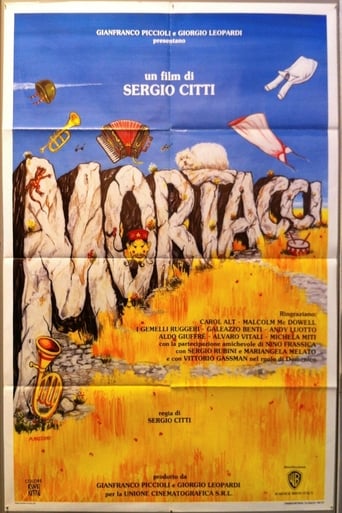












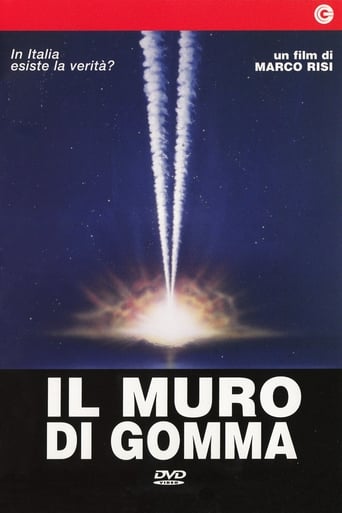






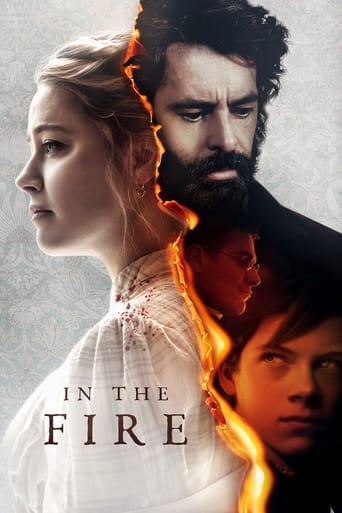





The Yes Man
Cesare Botero, an ambitious and corrupt young minister, hires a new spokesman, honest and polite high school professor Luciano Sandulli.